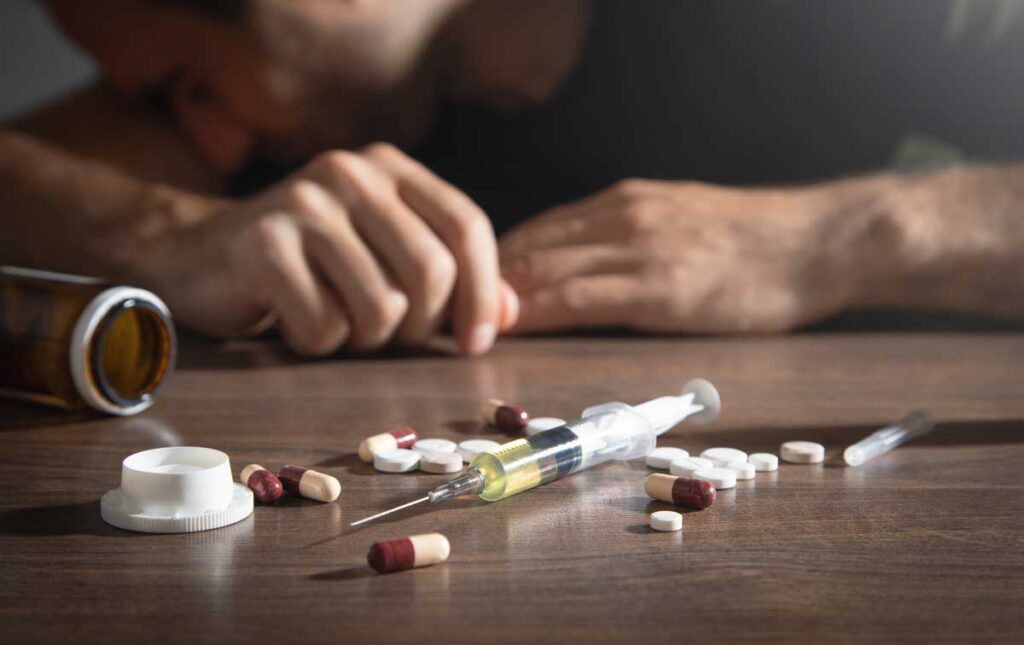The “War On Drugs” is a complex and controversial topic in the realm of addiction treatment and recovery. At Denovo Recovery, we delve deep into its layers, recognizing its profound impact on individuals grappling with substance abuse. Join us as we explore the historical context, societal implications, and alternative approaches to this multifaceted issue. If you or someone you know is struggling with addiction, take the first step towards healing today by contacting Denovo Recovery.
The Origins of the “War On Drugs”
- Historical Context: The roots of the “War On Drugs” can be traced back to the 1970s when President Richard Nixon declared drug abuse as a national emergency. This declaration marked the beginning of a concerted effort by the government to combat the proliferation of illicit drugs.
- Political Motivations: The “War On Drugs” gained momentum as successive administrations sought to demonstrate a tough stance on crime and public health issues. Political rhetoric often emphasized the need for aggressive enforcement measures to tackle drug-related problems.
- Legislative Actions: Over the years, a series of laws and policies were enacted to support the objectives of the “War On Drugs,” including mandatory minimum sentencing, asset forfeiture, and the expansion of law enforcement agencies’ authority.
The Impact of the “War On Drugs”
- Criminalization and Stigmatization: One of the most significant consequences of the “War On Drugs” has been the criminalization and stigmatization of individuals struggling with substance abuse disorders. Drug addiction became increasingly viewed through the lens of criminal behavior rather than a public health issue.
- Mass Incarceration: The aggressive enforcement strategies deployed as part of the “War On Drugs” contributed to a surge in incarceration rates, particularly among marginalized communities. Non-violent drug offenses resulted in lengthy prison sentences, perpetuating cycles of poverty and disenfranchisement.
- Health Disparities: The focus on punitive measures rather than harm reduction has exacerbated health disparities and hindered access to treatment and support services for vulnerable populations. Substance abuse disorders were often met with punishment rather than compassion and medical intervention.
Alternative Approaches to Addiction Treatment
- Shifting Paradigms: In recent years, there has been a growing recognition of the limitations of the “War On Drugs” approach to addressing addiction. Advocates and policymakers have called for a shift towards evidence-based practices that prioritize prevention, treatment, and harm reduction.
- Public Health Framework: Embracing addiction as a public health issue requires a comprehensive approach that addresses the underlying social, economic, and environmental factors contributing to substance abuse. This includes expanding access to treatment, implementing needle exchange programs, and promoting education and awareness.
- Community-Based Solutions: Building strong, supportive communities is essential for effective addiction treatment and recovery. Community-based organizations play a crucial role in providing holistic care, fostering peer support networks, and advocating for policy reforms that prioritize rehabilitation over incarceration.
Denovo Recovery’s Approach to Addiction Treatment
At Denovo Recovery, we believe in challenging the punitive mindset perpetuated by the “War On Drugs” and embracing a compassionate, evidence-based approach to addiction treatment. Our programs are tailored to meet the unique needs of each individual, addressing not only the physical aspects of addiction but also the underlying psychological, social, and spiritual dimensions.
Comprehensive Assessment: We conduct a thorough assessment of each client to develop a personalized treatment plan that addresses their specific needs and circumstances.
Evidence-Based Therapies: Our treatment modalities are grounded in scientific research and best practices, including cognitive-behavioral therapy (CBT), dialectical behavior therapy (DBT), motivational interviewing, and trauma-informed care.
Holistic Care: We recognize the importance of addressing the whole person in recovery, which is why we offer holistic therapies such as yoga, mindfulness meditation, art therapy, and nutrition counseling.
Aftercare Support: Recovery is a lifelong journey, and we provide ongoing support to help our clients maintain sobriety and navigate the challenges of everyday life. Our aftercare programs include relapse prevention strategies, support groups, and assistance with housing and employment.
Call Denovo Recovery Today!
If you or someone you love is struggling with addiction, don’t hesitate to reach out for help. Contact Denovo Recovery today to learn more about our comprehensive treatment programs and start your journey towards lasting recovery.
FAQs
Is addiction considered a disease?
Yes, addiction is recognized as a chronic brain disorder characterized by compulsive drug seeking and use despite harmful consequences. It is considered a complex interplay of genetic, environmental, and behavioral factors.
What role does trauma play in addiction?
Trauma often underlies addiction, serving as a contributing factor or exacerbating existing substance abuse issues. Addressing trauma through therapy and other interventions is essential for long-term recovery.
How do I know if I need professional help for addiction?
If you find that your substance use is interfering with your daily life, relationships, and responsibilities, it may be time to seek professional help. Signs include experiencing cravings, withdrawal symptoms, and unsuccessful attempts to quit using drugs or alcohol.
Can addiction be cured?
While addiction cannot be cured in the traditional sense, it can be effectively managed with the right treatment and support. Recovery is an ongoing process that requires commitment, dedication, and ongoing support.
What should I expect during addiction treatment at Denovo Recovery?
Treatment at Denovo Recovery is highly personalized and may include individual therapy, group counseling, experiential therapies, medication-assisted treatment (MAT), and aftercare planning. Our goal is to provide comprehensive care that addresses the physical, emotional, and spiritual aspects of addiction.

